- Home
- Michael Wallace
Not Death, But Love (Quill Gordon Mystery Book 3) Page 7
Not Death, But Love (Quill Gordon Mystery Book 3) Read online
Page 7
The remaining couple of pages dealt with her father’s legacy in the community and her brother’s assuming the family real estate business, which apparently was still a going concern. Gordon set the manuscript down after finishing, his mind racing. It pointed to three possible lines of further inquiry:
• Assuming Ned London’s family had inherited his stake in the partnership, Charlotte London was a wealthy woman by the standards of this remote mountain community.
• The source of her wealth was a large and controversial land development that had narrowly been approved when an elected official — now holding a higher and more powerful office — had implausibly changed his vote at the last minute.
• Just before that had happened, Charlotte’s father died in circumstances that she now felt were suspicious.
She had clearly felt she was onto something, and whatever it was could have been a motive for killing her. Thinking it over, Gordon realized that he had to share what he had in his possession. Thinking it over further, he didn’t want to go back to Sheriff Ballou with it — not now, anyway. He finished the last of the herbal tea, cold by now, and remembered what Judge Fletcher had said about the local newspaper. It might, he thought, be worth talking to the editor to see if some news coverage might pressure the sheriff to investigate Charlotte London’s death more aggressively. He suddenly felt tired and decided to sleep on it and act in the morning.
Before turning in, he closed the window and slid the chair from the writing table against the door to the room.
Wednesday June 19
THE BUFFET OPENED AT EIGHT, and Peter and Gordon were the first ones downstairs at 8:01. From a table groaning under toast, muffins, pastries, fruit, bagels, cereal, bread and cheese, they filled their plates in anticipation of an active day’s fishing. Gordon had noticed that the library had one dining table and steered them to it so they could speak without being overheard.
With the morning sun streaming through the windows across from them, they ate and drank coffee while Gordon gave a brief précis of the London family history and concluded by saying he wanted to meet with the newspaper editor after breakfast. Peter greeted the news with stoic resignation.
“It seems to me you have some questions at the very least,” he said. “And it would probably help to talk to someone who knows the community better — knows where the bodies are buried.” He took a swallow of coffee. “Sorry, inappropriate analogy.”
“But right, even so. The only question is who I can trust. It looks as if the London family got rich from a project that polarized the town and left some hard feelings. Charlotte seems to think there was more to her father’s death than meets the eye, and the fact that her house burned down right after she gave me that envelope would make anybody suspicious.”
“Anybody but the sheriff, apparently.”
“Which, again, is suspicious.”
“How well do you know Judge Fletcher?”
“Well enough to feel he’s being straight with me. But I don’t know enough about the politics of this place to have a sense of what other issues might be out there.”
“Then I’d say you should probably take the judge’s advice. If you talk to the newspaper editor, he might be able to tell you what other people in town are saying and who else might have some information. It’s a start.”
Gordon popped the last bite of a raspberry scone into his mouth and washed it down with coffee.
“The main thing is I have to get this into the hands of somebody who can do something about it — assuming there’s anything to be done.” He finished the last of the coffee. “But why did she come to me, of all people.”
“I can think of two reasons. The first is, as you say, the politics of this place could be touchy, and she didn’t feel she could trust anybody in town with it.”
“And the second reason?”
Peter finished his cup of coffee and set it on the saucer.
“The second reason is she may have been afraid she was going to die.”
AT NINE O’CLOCK, manila envelope in hand, Gordon walked out the front door of Stanhope house, down the front steps, and across the lawn to the state highway. A brisk, cool breeze was blowing, more like early spring than midsummer, and he held the envelope tightly. Looking both ways, he waited for one car to pass, and crossed the road. The sidewalk on the other side took him to the commercial building down the road that housed the offices of the Forest Clarion.
The newspaper was in the third of three spaces in a building set perpendicular to the highway, behind the Galloping Goose gift shop and Mountain Cuts hairstyling. The space was not large enough to hold a printing press and housed only the news, advertising and circulation ends of the enterprise. He hoped the editor was in and realized he didn’t even have a name, but he figured the paper was small enough that it probably wouldn’t matter.
He stepped through the front door into a cramped, low-ceilinged space that nevertheless seemed reassuringly informal. Just inside was a small lobby with four chairs reserved for visitors who might be waiting for someone. It seemed like three chairs too many. The lobby was a 12-by-15-foot area in the shape of a squared-off U, with counters on three sides. The counter a visitor encountered after walking through the door had two large posters — one promoting the upcoming Fourth of July parade and celebration and one showing the basketball schedules for the boys’ and girls’ teams at President Arthur High, whose seasons had ended three months ago. There was a low clacking sound made by three people working at computers, and at the back of the classified advertising department, a radio, turned down low, was playing Patsy Cline singing “Crazy for Loving You.” The building smelled of ink, old paper, and cigarettes smoked a decade ago.
“Have you been helped?”
Gordon looked to his left and saw a woman who could have been anywhere between 50 and 70 years old with tightly permed grayish-brown hair and large round eyeglasses. She seemed friendly in a bored sort of way that suggested dealing with him was more interesting than whatever she had been doing.
“Not yet.” He took a deep breath. “I was wondering if I might have a word with the editor.”
The woman stood and nodded.
“Could I say who’s calling and what it’s about?” The question was asked matter-of-factly with no sense of being protective.
“My name is Quill Gordon and I have some information about Charlotte London that I’d like to share.”
“Just a minute, please,” she said, with a knowing nod.
She walked to her left, looped behind the counter, and crossed into the right side of the office, stopping at a desk, the entire surface of which was covered with at least six inches of paper, some of it neatly stacked, some scattered. She leaned over and whispered something to a woman who looked to be in her late forties, wearing a snugly fitting burgundy top and a navy blue cap with a ponytail of sandy blond hair pushed through the back of it. The second woman looked up at Gordon and nodded, sending the first woman back to her post, then stood. She was tall, just under six feet, Gordon guessed, and the burgundy top was tucked into tight fitting jeans that showed her long legs and trim figure to good effect. She moved toward him with a stride that exuded languid confidence. A thought crossed his mind. If John Wayne had been a woman, this is how she would have walked. As she got closer he noticed an open friendly face, tanned, with freckles, blue eyes, small nose and large mouth, turned up slightly at the corners. At the counter, she extended a long right arm and shook his hand with a good grip that may have included an extra squeeze as she let go.
“Pleased to make your acquaintance, Mr. Gordon. I’m Elke Sundstrom.” She paused and sized him up at closer range. “So you have some information about Charlotte London?”
Gordon’s college roommate worked at the San Francisco Chronicle, and Gordon had learned from him that newspaper offices are magnets for cranks of all stripes. He knew he had to establish his bona fides, so he led with a reference.
“Yes,” he said. “I was t
alking with Judge Fletcher late yesterday, and he suggested I come to you about this.” A pause. “So here I am.”
She nodded slightly. “Louie’s one of the good guys,” she said. “I’ll hear you out, but can you be to the point? We’re on deadline and have to get this week’s paper out the door to the printers at noon.”
“I’ll be concise. But is there someplace a bit more private where we could talk?”
She nodded again, and stepping to her left, pulled open a swinging, waist-high door. He passed through it and followed her to a cubicle at the back corner of the office. Her walk looked as good from behind as it had when she was coming toward him a minute earlier, and when she leaned over her desk on the way to pick up a notebook and pen, it looked like a provocative gesture. There was a small table in the cubicle, with four chairs around it. He pulled out one of the chairs for her, and she did a double-take.
“Whoa,” she said. “Haven’t seen that move in a while. Now I know you’re not from around here.” She sat down. So did he.
“San Francisco,” he said. “My friend and I are here for some fishing.”
“You came to the right place. Maybe a little early in the season, but the right place. So how do you know Miss London?”
“It’s a strange story.” He paused.
“All right,” she said. “I’ll stop asking questions and let you tell it your way. And I’ll take notes, if you don’t mind.” He nodded. “If you make it interesting enough, I might even follow up on it after we get the paper out this morning. You’re on.”
Having told the story twice already, Gordon had the organization down pretty well, and he ran through it, including the family history, in under ten minutes. He was encouraged by the fact she was taking copious notes, filling three pages in a spiral-bound notebook. When he finished, he leaned back in his chair, and she set her Bic ballpoint on the notebook, clasped her hands, leaned forward, and said, in a low, husky voice:
“So let me be sure I got this straight. You went to the sheriff with a story about how one of our town’s most highly respected citizens came up to you, a total stranger, at a café, handed you something for safekeeping, and died that night in a fire at her nice, up-to-code house — and he didn’t think that was worth looking into?”
“I couldn’t make that up.”
She shook her head. “Even for Gene Ballou, that’s pretty clueless. I heard alarm bells going off all over as you were talking.”
“So did Judge Fletcher. Can you think of any reason the sheriff is blowing me off?”
“Actually, yes.” She looked over his shoulder and lowered her voice. “He’s in a tough campaign for re-election this fall. He’ll probably win, but if it turns out that Charlotte London’s death wasn’t accidental, and he can’t crack the case — well, we might have ourselves a new sheriff. He has every reason in the world to want to believe it was a tragic accident and the fire department’s problem.”
“But you’re intrigued.”
“Very much so. The question is, what to do about it. What do you think?”
“I don’t really know. The key part of her family history had to do with the development of the Peninsulas being argued over and approved in 1970-71. Any chance you were here then?”
“Afraid not. I was in the Bay Area back then. But 70 and 71 were pretty good years — at least the half of them I remember.”
“What made them good?”
“I was with a really crazy bunch of people, and we did some outrageous things my father wouldn’t have approved of. We were all waiting for the Summer of Love to return, but like Vaudeville, it never did.”
“You want to get a bit more specific about outrageous?”
“Scouting locations for communes, showing up stoned for protests and being absurd, running naked through fountains at dawn …”
“Best time to do it.” She gave him a sharp look. “Or so I’m told. Why did you run through the fountain?”
“I don’t remember that part. Probably because it was there. I think the cold water brought me out of it. I don’t suppose you were in San Francisco during the Summer of Love.”
“I was only eight years old. I didn’t participate.”
She gave him a knowing, Cheshire-cat smile. “Well, I suppose we all have to be eight some time.”
“Aren’t we kind of straying from the point?”
She sighed. “I guess so. But it’s a detour down memory lane, and I haven’t been there in a while.”
Another pause. “So you don’t know what went down here in 1970-71?” Gordon said.
“I know the official story. You remember that old black-and-white Western where the newspaper editor says, ‘When the legend becomes fact, print the legend?’ Well, the legend is pretty well established by now. It’s that Ned London and Roger Paris outfoxed the city slickers and saw to it that the Peninsulas got developed locally. It’s that they put their balls on the line to do it, and almost got them cut off, but they prevailed. And the fact that Ned London didn’t live to see it only added to the mythology.”
“Was there any indication that there was something about it that wasn’t quite right?”
She thought for a minute. “We took over the paper in 1975, and in 1976, Bart Sturges was running for re-election to the State Assembly. He got elected the first time two years earlier, which was two years after his term on the Board of Supervisors ended. I seem to remember a bit of a whispering campaign that there was a bad odor about his vote to approve the Peninsulas development. But he won the election and kept on winning elections, and the talk went away. I’d forgotten about it until you asked just now.”
“How about Ned London’s death?”
“Never heard it called anything but a straightforward accident. Ran his car off an icy road and down a hundred-foot embankment. He may have been drinking a bit, but still an accident.”
“And a quarter century later, after starting to ask questions about it, his daughter dies in a fire that looks like an accident. That seems like too many accidents in one family.”
“Yes it does.” She looked at her watch. “Oh, God. We have to wrap this up.”
“But you’re not going to let it drop?”
“Hell no. At the very least this bears looking into, and if we find something, maybe this newspaper can shame our sheriff into taking it seriously.”
“What next, then?”
“Are you free tonight?”
“I can be.”
“You know Garbini’s?”
“Just down the street?”
“Can you meet me there for a drink at six?”
“Done. Is it OK if I bring my friend? He’s pretty sharp and might be able to add something to the discussion.”
“Absolutely. And where can I get hold of you if something comes up?”
“We’re staying at Stanhope House.” He took out his wallet, got one of his cards and handed it to her. “And my pager’s on this. But I leave it in the car when I’m fishing, so don’t worry if I don’t get back to you right away.”
“One last thing. Can I get a copy of the family history?”
“You can have this one,” he said, handing her his printout. “I have the original on computer and disk, but I’d feel better if there was a copy in other hands.”
She took it, stood and extended her hand. Gordon rose and shook it. Again, there seemed to be a bit of a squeeze from her at the end, but it could have been his imagination.
“See you at six, then. Oh, and I may bring someone, too.”
He gave her a questioning look.
“Gina Lindsay. She teaches at the high school, too, and says she’s Charlotte’s best friend. She came by the office yesterday, and she doesn’t believe Charlotte’s death was an accident. Not at all.”
“WELL?” said Peter, when Gordon returned.
“A little bit encouraging, anyway. She seems to be interested.”
“She? I thought you said the editor was a man?”
“That was a mi
staken assumption.”
“You’re old enough to know better.”
“Don’t remind me. In any event, I have an appointment tonight, and you’re invited. We’re meeting her — Elke Sundstrom is the name — at the bar at Garbini’s at six o’clock. She’s going to try to have Charlotte London’s best friend there.”
“No twilight fishing tonight, I take it.”
“Sorry, Peter. I have to deal with Charlotte London’s envelope.”
“The curse of your honest face. But I suppose there are worse things in life than meeting two women at six o’clock.”
“That’s the team spirit.” Gordon looked at his watch. “And we can still get several hours of fishing in before then.”
After loading the Cherokee, Gordon started the engine, but at the instant he turned the key, his pager, resting in one of the cup holders, began to beep. He looked at it and switched off the ignition.
“From this area code,” he said. “Probably my newspaper friend with something else. Let me call back real quick.”
He leaned across the console, opened the glove compartment, and took out the Nokia cell phone he’d bought two months earlier. He had chosen the brand after being told it worked in mountainous areas better than other phones. Quickly, he punched in the number from the pager.
“Law offices,” said a female voice on the other end.
He swallowed. “My name is Quill Gordon, and I just got a page from your number.”
“Oh, yes. Mr. Winters is expecting your call. Just a minute.”
The phone was silent for only a few seconds before a comforting baritone voice came on.
“Cameron Winters here. Mr. Gordon?”
“Speaking.”
“Glad I got hold of you. I left two messages yesterday at the number on your card, and decided to try the pager when I didn’t hear back. Hope I didn’t interrupt you. Are you in San Francisco?”
“Actually, I’m in the parking area at Stanhope House.”

 Crowlord (The Sword Saint Series Book 2)
Crowlord (The Sword Saint Series Book 2) Crowlord
Crowlord The Red Sword- The Complete Trilogy
The Red Sword- The Complete Trilogy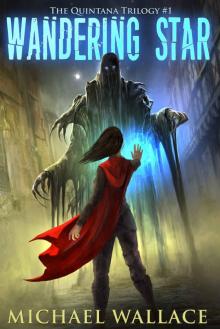 Wandering Star (The Quintana Trilogy Book 1)
Wandering Star (The Quintana Trilogy Book 1)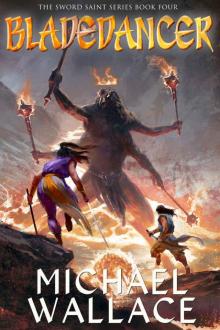 Bladedancer
Bladedancer Sword Saint
Sword Saint The Alliance Trilogy
The Alliance Trilogy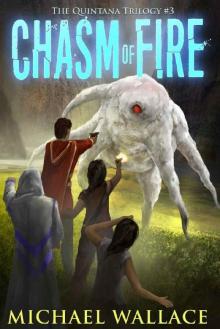 Chasm of Fire
Chasm of Fire Bladedancer (The Sword Saint Series Book 4)
Bladedancer (The Sword Saint Series Book 4) The Devil's Deep
The Devil's Deep Shadow Walker (The Sword Saint Series Book 3)
Shadow Walker (The Sword Saint Series Book 3) Starship Blackbeard
Starship Blackbeard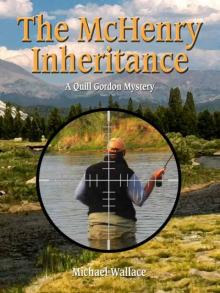 The McHenry Inheritance (Quill Gordon Mystery Book 1)
The McHenry Inheritance (Quill Gordon Mystery Book 1) Sun King (The Void Queen Trilogy Book 3)
Sun King (The Void Queen Trilogy Book 3) Blood of Vipers
Blood of Vipers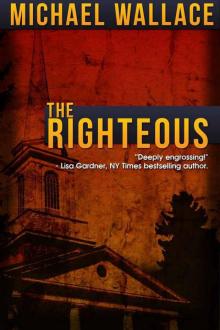 Righteous - 01 - The Righteous
Righteous - 01 - The Righteous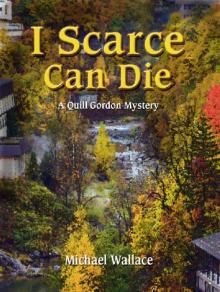 I Scarce Can Die (Quill Gordon Mystery Book 5)
I Scarce Can Die (Quill Gordon Mystery Book 5)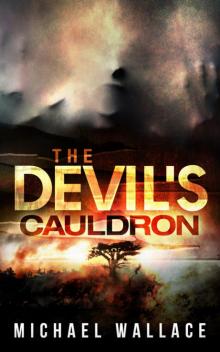 The Devil's Cauldron
The Devil's Cauldron The Wicked (The Righteous)
The Wicked (The Righteous)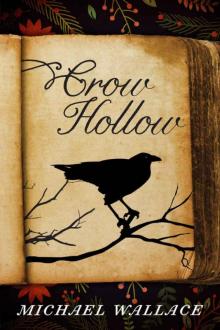 Crow Hollow
Crow Hollow Righteous03 - The Wicked
Righteous03 - The Wicked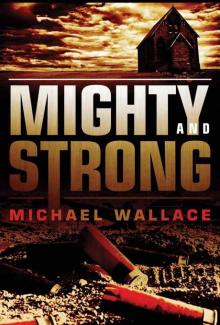 Righteous02 - Mighty and Strong
Righteous02 - Mighty and Strong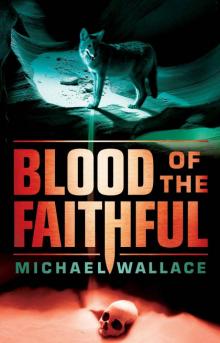 Blood of the Faithful
Blood of the Faithful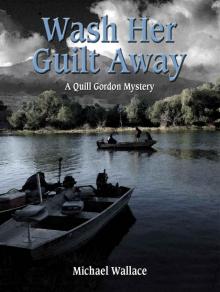 Wash Her Guilt Away (Quill Gordon Mystery Book 2)
Wash Her Guilt Away (Quill Gordon Mystery Book 2) The Kingdom of the Bears
The Kingdom of the Bears The Emerald Crown (The Red Sword Trilogy Book 3)
The Emerald Crown (The Red Sword Trilogy Book 3)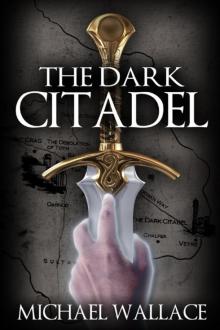 The Dark Citadel
The Dark Citadel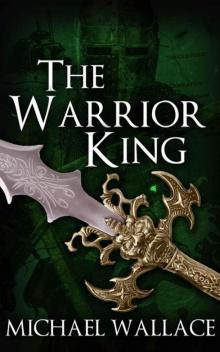 The Warrior King (Book 4)
The Warrior King (Book 4) Rebellion of Stars (Starship Blackbeard Book 4)
Rebellion of Stars (Starship Blackbeard Book 4)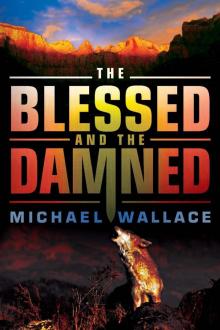 Righteous04 - The Blessed and the Damned
Righteous04 - The Blessed and the Damned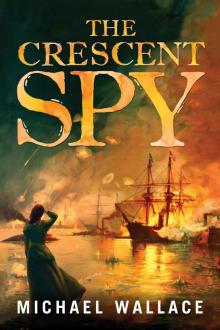 The Crescent Spy
The Crescent Spy Queen of the Void (The Void Queen Trilogy Book 1)
Queen of the Void (The Void Queen Trilogy Book 1)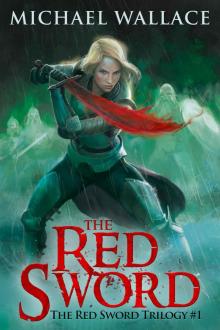 The Red Sword (The Red Sword Trilogy Book 1)
The Red Sword (The Red Sword Trilogy Book 1) The Sentinel (The Sentinel Trilogy Book 1)
The Sentinel (The Sentinel Trilogy Book 1) The Golden Griffin (Book 3)
The Golden Griffin (Book 3)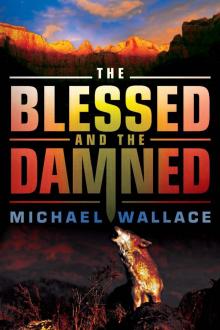 The Blessed and the Damned (Righteous Series #4)
The Blessed and the Damned (Righteous Series #4) Hell's Fortress
Hell's Fortress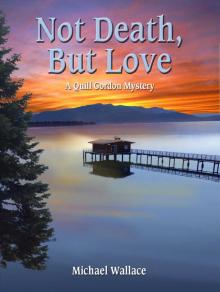 Not Death, But Love (Quill Gordon Mystery Book 3)
Not Death, But Love (Quill Gordon Mystery Book 3) Destroying Angel
Destroying Angel The Free Kingdoms (Book 2)
The Free Kingdoms (Book 2) Dragon Quadrant (The Sentinel Trilogy Book 2)
Dragon Quadrant (The Sentinel Trilogy Book 2) Shattered Sun (The Sentinel Trilogy Book 3)
Shattered Sun (The Sentinel Trilogy Book 3)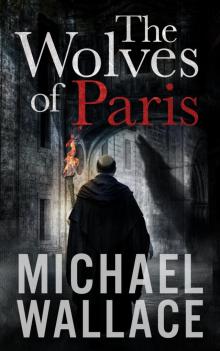 The Wolves of Paris
The Wolves of Paris Lords of Space (Starship Blackbeard Book 2)
Lords of Space (Starship Blackbeard Book 2) Dreadnought (Starship Blackbeard Book 3)
Dreadnought (Starship Blackbeard Book 3) The Village of Dead Souls: A Zombie Novel
The Village of Dead Souls: A Zombie Novel The Black Shield (The Red Sword Book 2)
The Black Shield (The Red Sword Book 2)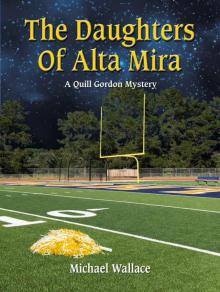 The Daughters Of Alta Mira (Quill Gordon Mystery Book 4)
The Daughters Of Alta Mira (Quill Gordon Mystery Book 4) Mighty and Strong (The Righteous)
Mighty and Strong (The Righteous)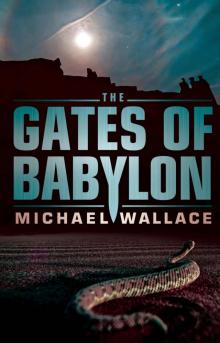 The Gates of Babylon
The Gates of Babylon